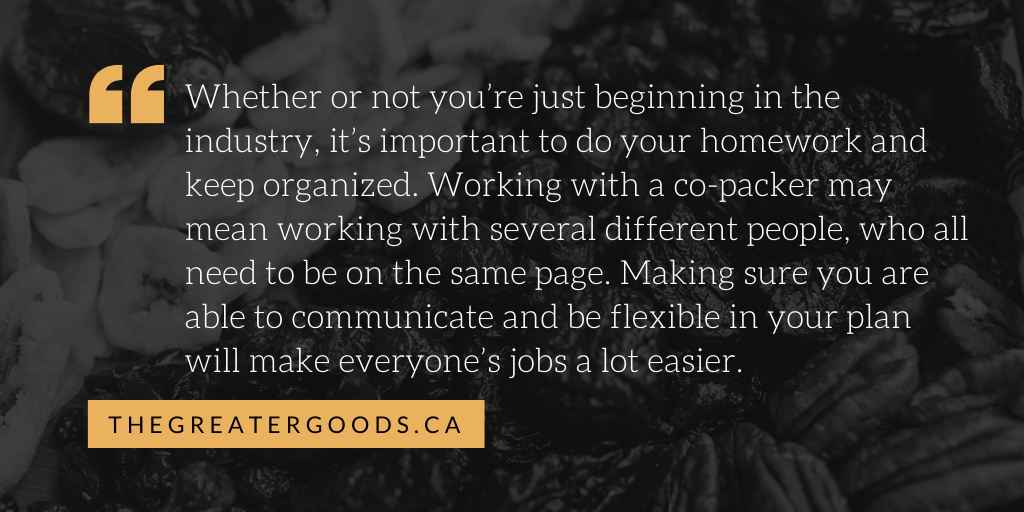Have you recently started working with a co-packer, and want to know what you can do to make your relationship stronger? While a co-packer is technically working for you, they harbor a great amount of control over your company. After all, depending on your individual agreement, they may be in charge of making, packaging, and ordering the ingredients for your product. Therefore, if you’ve found a great co-packer, this is a relationship you do not want to jeopardize! In this article, we take a look at 3 tips for a great co-packer relationship, so you can do everything in your power to strengthen it.
Plan, Communicate, and Be Flexible

Whether or not you’re just beginning in the industry, it’s important to do your homework and keep organized. Working with a co-packer may mean working with several different people, who all need to be on the same page. Making sure you are able to communicate and be flexible in your plan will make everyone’s jobs a lot easier.
Chris Kirby, Founder and CEO of Ithaca Cold-Crafted tells us more on the importance of a realistic, well-communicated plan on Medium.com:
“Once you’re up and running and all of the kinks are worked out, it comes down to forecasting and communication. During the startup phase you’re working with engineers, machine operators, QA technicians etc. But now the day to day work will be with the logistics coordinators, material planners, and warehouse managers. All of these people REALLY appreciate a well thought out plan that’s accurate, realistic, and well communicated. It’s a good idea to share an updated rolling forecast on a weekly basis with the people who need it.”
Refer New Business
While you may be afraid that new business may take away from your co-packers attention to your product, it will only benefit yourself and your co-packer. Referring new business to your co-packer will not only bring in more money for their business, but it could result in lower costs for you.
Gredio.com explains why you should refer new business to your co-packer whenever possible:
“I know you’ve got at least one goal for your company. I bet it’s making money. Am I right? Probably. And the same goes with your co-packer. They’re a business, too. So, whenever you’re at a farmer’s market or chatting up a demo guy at your neighborhood grocery store, keep your co-packer in mind. They’ll love you when you refer business their way. Plus, you may even get a discount out of it. Cha-ching!”
Remember That You Are Not Their Only Customer
While this may seem like an odd tip, it’s important to remember that you are not your co-packer’s only customer. It’s important to be understanding if your co-packer is not always able to respond to change as quickly as you may prefer, as at the end of the day, your co-packer having a good amount of business will only benefit you.
New Food Strategies tells us why it can be reasonable to cut your co-packer some slack:
“Many early-stage companies expect co-packers to react quickly to any change in demand or product. This is often difficult because co-packers can have up to 20 different customers all making simultaneous demands. These inherent conflicts can be worked through, but it helps if the customer remembers that the more business a co-packer has the more they can spread their fixed costs, lowering prices for everybody.”
Here at The Greater Goods, we offer consultation services for your business, from food production to distribution. If you’re looking for advice on how to get up and running, we offer a free consultation with our expert food industry consultants and food brokers.
